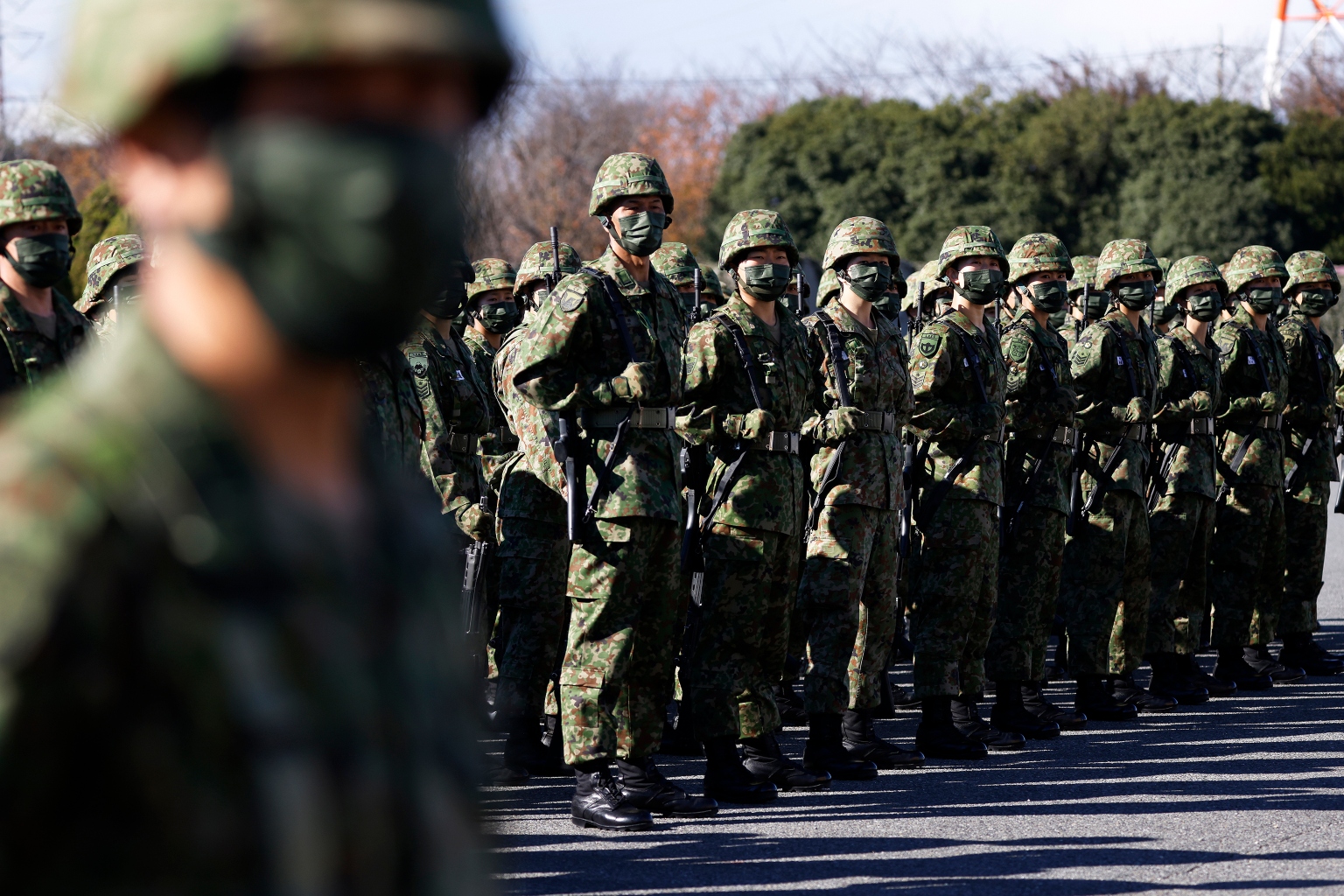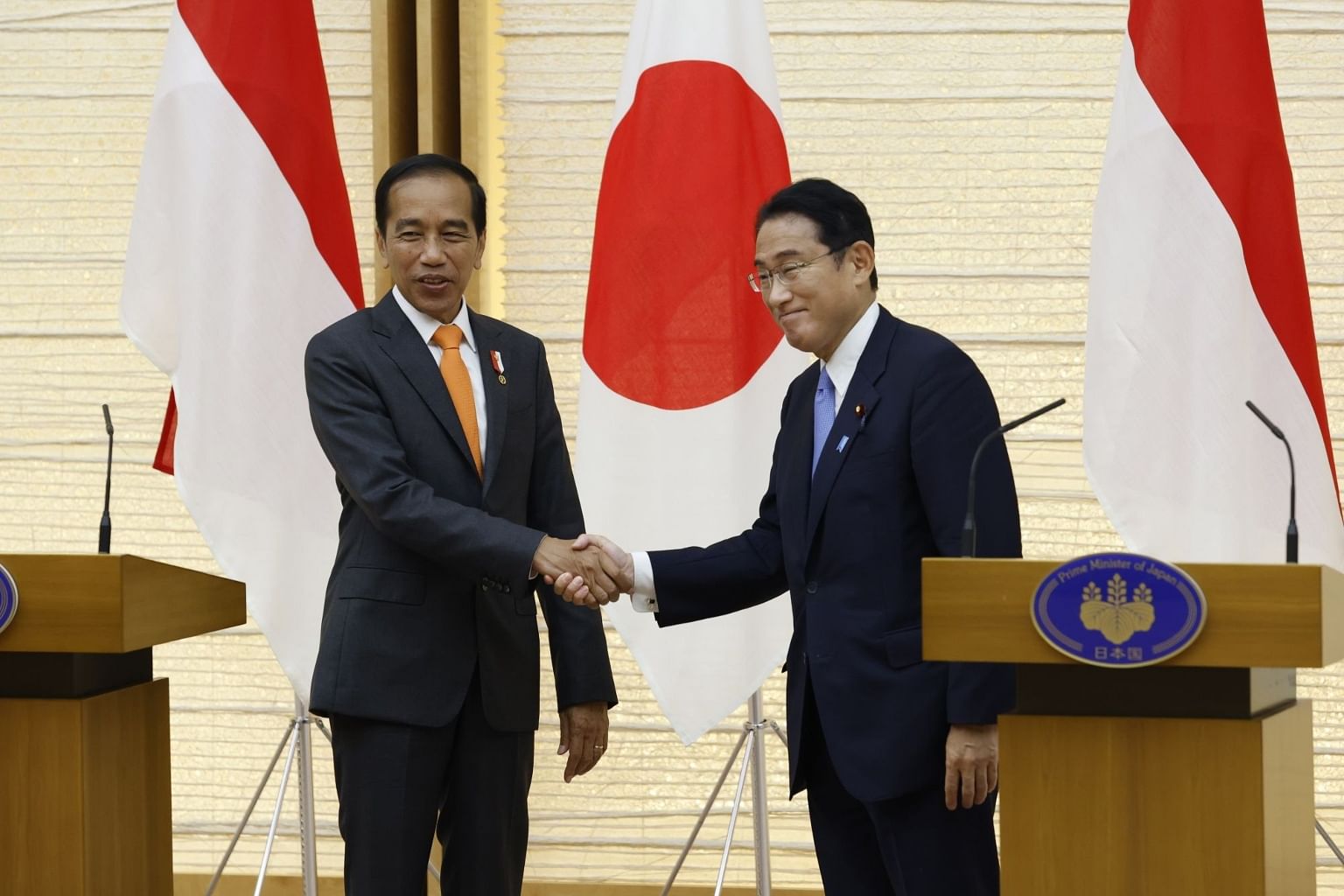Japan joins Indonesia’s multinational military drill, plans to scale up trade and investment
Sign up now: Get insights on Asia's fast-moving developments

Members of the Japan Self-Defence Forces in Tokyo last November.
PHOTO: EPA-EFE
Follow topic:
TOKYO - Japan’s defence forces will join a multinational military exercise in Indonesia for the first time next month, alongside the United States, as Tokyo ramps up efforts to counter China’s growing assertiveness in the Indo-Pacific region.
The annual Garuda Shield military exercise typically between Indonesia and the US, slated for Aug 1 to 14, is expected to be significantly larger than previous rounds, with several nations participating or observing for the first time.
“Indonesia shares fundamental values with us as well as strategic goals, it is a strategic partner,” Prime Minister Fumio Kishida told a press conference on Wednesday (July 27) after meeting Indonesian President Joko Widodo in Tokyo.
The two leaders agreed to deepen cooperation in maritime security, and Japan would further support the improvement of Indonesia’s coast guard capabilities.
Japan is the second stop on Mr Widodo’s tour of East Asia, after he met Chinese President Xi Jinping in Beijing on Tuesday. He is scheduled to meet South Korean President Yoon Suk-yeol in Seoul on Thursday.
In Tokyo, the Indonesian leader conveyed his condolences on the death of former premier Shinzo Abe. He also thanked Mr Kishida for Japan’s support of Indonesia’s presidency in the Group of 20 major economies, and invited him to the G-20 Summit from Nov 15 to 16 in Bali .
Mr Widodo and his wife Iriana also called on Emperor Naruhito and Empress Masako.
Mr Kishida and Mr Widodo discussed a broad range of issues, from strengthening trade and investment between their countries to the situation in Myanmar and the Russia-Ukraine war.
Japan is Indonesia’s traditional economic partner, with bilateral trade reaching more than US$32 billion (S$44.4 billion) last year and Japanese investment in Indonesia reaching US$2.26 billion, according to Indonesia’s official data.
Mr Kishida said he would like to strengthen discussions and investments in the automobile industry, food and start-ups, as well as cooperation in the environment sector.
Mr Widodo called on the Japanese science and technology sector to support Indonesia, particularly in the areas of downstreaming of natural commodities, the development of electric cars and motorcycles, as well as health and food.
Mr Kishida said Indonesia has lifted all restrictions on imports of Japanese food products that were imposed in the wake of the Fukushima nuclear crisis in 2011.
Meanwhile, Mr Widodo urged Japan to open market access for mango products and ease tariffs for tuna, bananas and pineapples.
He said changes to the Indonesia-Japan Economic Partnership Agreement “can be finalised and signed” at the G-20 Summit.

The trade deal was signed in 2008 to ensure future strategic economic cooperation can be further strengthened.
It was due for a “general review” in 2013, but negotiations were stalled in 2016 over disagreements in automotive products and steel tariffs. The review resumed the following year, and the report concluded in 2019.
Mr Widodo noted that next year, Indonesia will chair Asean while Japan will chair the G-7, a grouping of seven advanced economies.
He said: “We will continue to coordinate in formulating the priority agenda of the chairmanship, in order to contribute more to peace and prosperity in the region and the world.”

